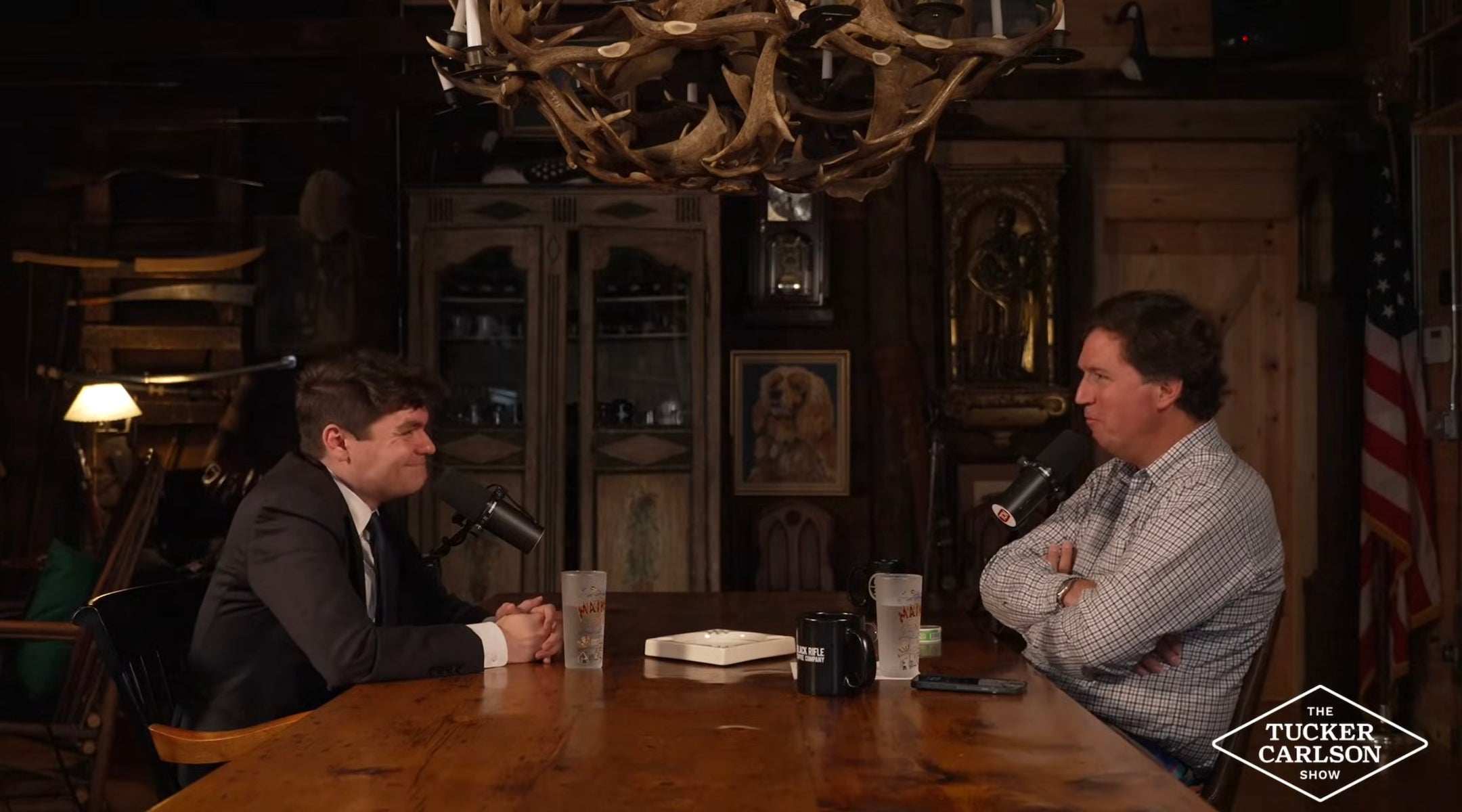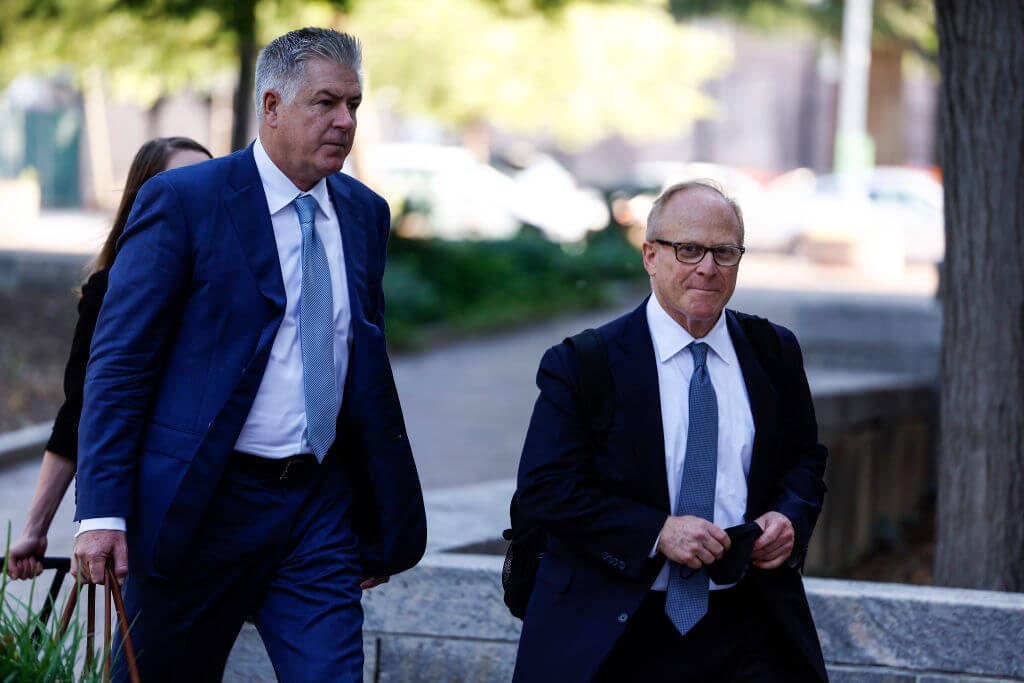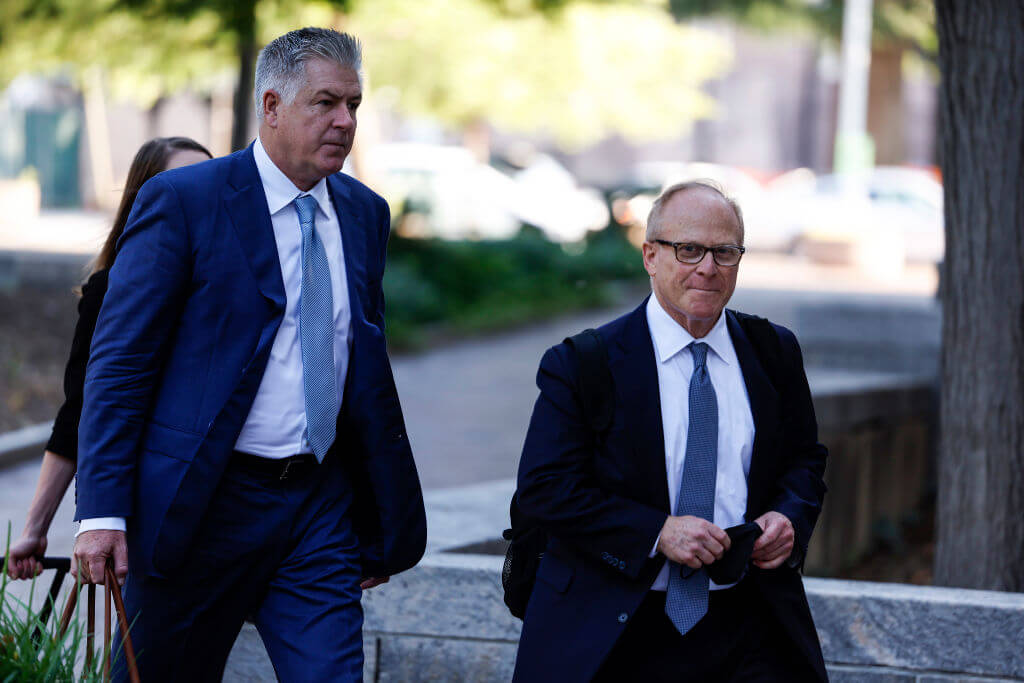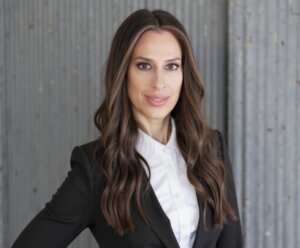Uncategorized
Tucker Carlson hosts Nick Fuentes for a friendly conversation about ‘these Zionist Jews’

(JTA) — Tucker Carlson wanted to know: What does Nick Fuentes actually believe?
“Everybody’s going to be like, ‘You’re a Nazi, you just like Fuentes,’” the former Fox News personality mused on his show Tuesday. “But then I’m like, ‘I don’t think Fuentes is going away. Ben Shapiro tried to strangle him in the crib in college, and now he’s bigger than ever.’”
So Carlson invited the avowed antisemite and white nationalist livestreamer onto his online talk show. There, the two had a friendly conversation about the Jews, and whether it was right to blame them for everything.
And Fuentes, whose own platform has only grown in the wake of the assassination of conservative archrival Charlie Kirk, made clear what he believes. Asked who in the conservative movement needed to be taken down, he responded, “These Zionist Jews.”
The sit-down, which had been rumored for weeks, carries implications for the growing popularity of antisemitism and anti-Israel voices on the right. Both men have followings in the millions, and Carlson has maintained close ties in President Donald Trump’s orbit even as he has become a vociferous critic of Israel and helped platform Holocaust revisionists.
Fuentes, meanwhile, has launched a far-right attack on mainstream conservatives using antisemitism as his chief plank — an ideology that an increasing number of young conservative operatives are also embracing. On YouTube, the top comments under the two-hour episode were rife with antisemitic memes.
Even as he signalled broad alignment with Fuentes’s views on Israel, Carlson gently sought to distinguish himself from his guest’s more overt antisemitism.
“I’m not that interested in ‘the Jews,’ but I am very interested in the foreign policy question,” Carlson said at one point, bringing up his fingers for air quotes. Later, he told Fuentes, “The second you’re like, ‘Well, actually, it’s the Jews,’ first of all, it’s against my Christian faith. Like, I just don’t believe that and I never will. Period. And second, then it becomes a way to discredit. That’s when I was like, ‘This guy’s a fed.’”
In response, the young man who opens his “America First” online shows with animated depictions of Jewish conspiracies outlined his own core belief: that “neoconservatism,” an ideology he opposes, is Jewish in nature because it prioritizes allegiance to Israel over traditional conservative principles.
“As far as the Jews are concerned, you cannot actually divorce Israel and the neocons and all those things that you talk about from Jewishness: ethnicity, religion, identity,” Fuentes told Carlson. While some Jews do oppose Israel, he acknowledged, among his enemies in conservatism, “I see Jewishness as the common denominator.”
Fuentes continued, “They’re a stateless people. They’re unassimilable. They resist assimilation for thousands of years. And I think that’s a good thing. And now they have this territory in Israel. There’s a deep religious affection for the state. It’s bound up in their identity.” Modern neoconservatism, he said, stemmed from “Jewish leftists who were mugged by reality when they saw the surprise attack in the Yom Kippur War.”
Fuentes insisted he doesn’t hate all Jews: “Not to be that guy and say that thing, but my best friend is a Jewish person,” he said, also claiming his “assistant” is Jewish (it was unclear if he was referring to the same person). He then went on to blend his understanding of Jewish American anxieties, some of which have been articulated by leading Jewish communal figures, with the dual-loyalty trope.
“If you are a Jewish person in America, it’s sort of rational self-interest, politically, to say, ‘I am a minority. I am a religious, ethnic minority. This is not really my home. My ancestral home is in Israel,’” Fuentes said. “They have this international community across borders, extremely organized, that is putting the interests of themselves before the interests of their home country.”
Even beyond Israel, Fuentes also sought to paint Judaism as incompatible with the European tradition to which America’s modern right aspires. “They hate the Romans because the Romans destroyed the Temple,” he said. “We don’t think that, as Americans and white people.”
To hear Fuentes tell it, his radicalization was a story of first being taken in by, before later rebelling against, influential Jewish conservatives. Israel was his breaking point, he insisted.
Ben Shapiro, Mark Levin and Dennis Prager were his right-wing heroes in high school, Fuentes said; he would parrot Shapiro talking points in debates and was a member of a Facebook group for young fans of PragerU. As a college freshman in 2017 he fell into the orbit of The Daily Wire, Shapiro’s media company, after a debate against his school’s progressive student body president went viral. Fuentes would soon drop out of college to pursue conservative media full-time.
Quickly, Fuentes claimed, he became suspicious of Shapiro’s pro-Israel views. When a staffer asked him if he had any interest in traveling to Israel, he responded, “No, I think I have everything I need right here in America…. And that was a little bit of foreshadowing.”
Later, he said, he would challenge Daily Wire staff: “I would say, ‘So, why do we give Israel all this money?’” he recalled. “They would say, ‘You’re asking it in an antisemitic way.’”
But Fuentes, in his recollection, “was genuinely inquisitive. I wanted to know. Is there an actual reason?… There’s a lot of these neocon Jewish types behind the Iraq War.” The Daily Wire’s rejection of his questions on Israel, he said, spurred his shunning across the broader mainstream conservative movement and led to him going independent with his preaching of more insidious forms of Jewish control.
Comparing himself to Shapiro, Fuentes reflected, “I didn’t come from some strange background. I come from a normal home. My parents are Catholic.” (In recent weeks, Shapiro and some other voices on the right have warned of a rise in antisemitic conspiracies among their ranks.)
Even as Fuentes became a Trump loyalist in the run-up to the 2016 election, he said, he broke with conservatives by supporting President Barack Obama’s decision to abstain from, rather than back, a National Security Council resolution condemning Israeli settlements in the West Bank.
“Fox News and all the pro-Israel conservatives are calling him an antisemite. They’re saying, ‘He hates Jews! He’s an antisemite! He hates Israel!’” Fuentes recalled. “It seemed hypocritical. It seemed like how, when conservatives would critique anything about race, we got called racist. Or anything about feminism, we got called sexist. All Obama did was uphold US policy on the West Bank that we’ve had since ’67, which is, we don’t support the settlements. I said, how is it antisemitic to just be consistent on our U.S. foreign policy?”
On Israel, Carlson said, they agreed.
“I always thought it’s great to criticize and question our relationship with Israel because it’s insane and it hurts us,” Carlson told him. “We get nothing out of it. I completely agree with you there.” He also blasted Christian Zionists on the right he used to support, including U.S. Ambassador to Israel Mike Huckabee, whom he said have been “seized by this brain virus.”
Later discussing the war in Gaza, Carlson added, “One of the reasons I’m mad about Gaza is because the Israeli position is, everyone who lives in Gaza is a terrorist because of how they were born, including the women and the children. That’s not a Western view. That’s an Eastern view. That’s non-Christian. That’s totally incompatible with Christianity and Western civilization. They say, ‘Oh, we’re the defenders of Western civilization.’ Not with that attitude, you’re not.”
The two did agree on some Jews they both respect, including Glenn Greenwald, an iconoclastic Israel critic formerly on the left who himself hosted Fuentes recently on his own podcast, and Paul the Apostle.
Elsewhere, the men discussed whom Fuentes wants to see be president next (he picked Ye, the superstar rapper who has embraced Nazism) and his 2022 dinner at Mar-a-Lago with Ye and Trump, where Fuentes said the once and future president said, “This guy’s hardcore. I like this guy.” (Trump has since claimed he didn’t know who Fuentes was when they dined together.)
When asked to share his unfettered core beliefs with Carlson, Fuentes obliged, painting a vision of a future America that Jews did not have the right to inherit.
“We do need to be right-wing. We do need to be Christian. We do, on some level, need to be pro-white,” he said. “Not to the exclusion of everybody else, but recognizing that white people have a special heritage here, as Americans.”
The post Tucker Carlson hosts Nick Fuentes for a friendly conversation about ‘these Zionist Jews’ appeared first on The Forward.
Uncategorized
A border official mocked an attorney for observing Shabbat. Orthodox lawyers say the issue is not new.

Gregory Bovino, the Border Patrol official who led immigration raids in Minneapolis, reportedly mocked the Jewish faith of Minnesota’s U.S. attorney during a phone call with other prosecutors in mid-January. According to The New York Times, Bovino complained that Daniel Rosen, an Orthodox Jew, was hard to reach over the weekend because he observes Shabbat and sarcastically pointed out that Orthodox Jewish criminals don’t take the weekends off.
The call took place at a moment of extreme tension in Minneapolis, as federal agents under Bovino’s command carried out an aggressive immigration crackdown that had already turned deadly. It came between the fatal shootings of Renée Good and Alex Pretti, both killed during enforcement operations, and amid fierce backlash from local officials and residents.
Bovino made the remarks in a derisive, mocking tone, the Times reported, casting Shabbat observance as a point of ridicule. Bovino had already drawn national attention for frequently wearing an olive double-breasted greatcoat with World War II-era styling, leading some critics to call him “Gestapo Greg” and accusing him of “Nazi cosplay.” Bovino, who pushed back on those comparisons, has since been reassigned.
Rosen, a Trump nominee, was confirmed as Minnesota’s U.S. attorney in October 2025 after a career in private practice and Jewish communal leadership. He has said that rising antisemitism helped motivate his decision to take the job, and that prosecuting hate crimes would be a priority for his office.
For many Orthodox Jewish lawyers, Bovino’s alleged remarks were not surprising. They echoed a familiar challenge: explaining that Shabbat — a full day offline — is not a lack of commitment, but a religious boundary that cannot be bent without being broken.
In a profession that prizes constant availability, that boundary can carry consequences. Some lawyers say it shows up in subtle ways: raised eyebrows, jokes about being unreachable, skepticism when they ask for time off. Others say it has shaped much bigger decisions, including how visibly Jewish they allow themselves to be at work.

David Schoen, an Orthodox criminal defense attorney who served as lead counsel for President Donald Trump during his second impeachment trial, said he has long been mindful of how religious observance is perceived in the courtroom.
“I have made a conscious decision not to wear my yarmulke in front of a jury,” Schoen said, explaining that jurors often “draw stereotypes from what they see.”
Those concerns were reinforced by experience. Schoen said he has noticed a “definite difference in attitude” from some judges depending on whether he wore a yarmulke. In one case, he recalled, a Jewish judge pulled him aside during a jury trial and told him she thought he had made the right choice — a comment Schoen said he found disappointing.

For Sara Shulevitz, a criminal defense attorney and former prosecutor, the Bovino episode brought back memories from early in her career.
Orthodox and the daughter of a Hasidic rabbi — now married to one — Shulevitz said her unavailability on Jewish holidays was often treated as a professional flaw rather than a religious obligation. “It held me back from getting promotions,” she said.
In court, the scrutiny could be blunt. “I was mocked by a Jewish judge for celebrating ‘antiquated’ Jewish holidays,” she said, recalling requests for continuances for Shemini Atzeret and Simchat Torah. In another case, she said, a judge questioned her request for time off for Shavuot and suggested she had already “taken off for Passover.”
When another judge assumed Passover always began on the same day in April, “I had to explain the Jewish lunar calendar in the middle of court while everyone was laughing,” she said.
Not every encounter, Shulevitz added, was rooted in hostility. Sometimes judges simply didn’t understand Orthodox practice. When she explained she couldn’t appear on a Jewish holiday, judges would suggest she join the hearing by Zoom — forcing her to explain that Orthodox Jews don’t use electrical devices on Shabbat or festivals.
The misunderstanding often slid into a familiar assumption. “They think you’re lazy,” she said. “It’s not laziness. Any Jewish woman knows how much work goes into preparing for Passover.”
Rabbi Michael Broyde, a law professor at Emory University who studies religious accommodation, said that Bovino’s alleged “derogatory remarks” are “sad and reflects, I worry, the antisemitic times we seem to be living in.”
He added that the criticism of Rosen reflected a basic misunderstanding of how law offices operate, calling it “extremely rare” for a lawyer’s religious practices to interfere with their obligations, especially when senior attorneys delegate work and courts routinely grant continuances.
“No one works 24/7,” Broyde said.
The episode echoed a similar Shabbat-related incident during Trump’s first term. In his 2022 memoir, former Trump trade adviser Peter Navarro described how a group sought to undermine Trump son-in-law Jared Kushner’s role in the 2020 campaign by scheduling a key White House meeting with Trump on a Saturday, knowing Kushner — who is Shabbat observant — would not attend. Navarro titled the chapter recounting the episode, “Shabbat Shalom and Sayonara.”
The tension between Jewish observance and public life is not new. Senator Joe Lieberman, the first observant Jew to run on a major-party presidential ticket, famously walked to the Capitol for a Saturday vote and ate fish instead of meat at receptions. His longtime Senate colleague Chris Dodd joked that he became Lieberman’s “Shabbos goy.”
Still, Schoen said, visibility can cut both ways. During Trump’s impeachment trial, while speaking on the Senate floor, he reached for a bottle of water and instinctively paused. With one hand holding the bottle, he used the other to cover his head — a makeshift yarmulke — before drinking.
The moment was brief, but it did not go unnoticed. In the days that followed, Schoen said he heard from young Jewish men and businesspeople who told him that seeing the gesture made them feel more comfortable wearing their own yarmulkes at work.
The attention, he said, was unexpected. But for some in the Orthodox community, it became a source of pride.
“I felt honored,” Schoen said.
My guess in all seriousness is that he normally wears a yarmulke and this was reflex. Schoen is modern Orthodox so that would make sense. But I defer to @jacobkornbluh https://t.co/MkKx6W03v2
— Jake Tapper 🦅 (@jaketapper) February 9, 2021
Jacob Kornbluh contributed additional reporting.
The post A border official mocked an attorney for observing Shabbat. Orthodox lawyers say the issue is not new. appeared first on The Forward.
Uncategorized
Deni Avdija becomes first Israeli to be selected as an NBA All-Star
(JTA) — Portland Trail Blazers star Deni Avdija’s meteoric rise has officially reached a new stratosphere, as the 25-year-old forward has become the NBA’s first-ever Israeli All-Star.
Avdija was named an All-Star reserve for the Western Conference on Sunday, an expected but deserved nod after the northern Israel native finished seventh in All-Star voting with over 2.2 million votes, ahead of NBA legends LeBron James and Kevin Durant. Avdija’s breakout performance this season has earned him repeated praise from James and others across the league.
Avdija’s star turn began last year in his first season with Portland, when he further captured the adoration of Jewish fans across Israel and the U.S. But he took another step forward this season, averaging 25.8 points, 6.8 assists and 7.2 rebounds per game. His points and assists clips are by far the best of his career, and rank 13th and 12th in the NBA, respectively. He’s considered a front-runner for the league’s Most Improved Player award.
For close observers of Israeli basketball, Avdija’s All-Star selection is the culmination of a promising career that began as a teenage star with Maccabi Tel Aviv and made him the first Israeli chosen in the top 10 in an NBA draft.
“Deni Avdija being named an NBA All-Star reserve is an unbelievable achievement in the mind of every Israeli basketball fan,” Moshe Halickman, who covers basketball for the popular Sports Rabbi website, wrote in an essay for the Jewish Telegraphic Agency. “This is a dream come true for many — a dream that became realistic and even a must-happen during his breakout season — but something that in his first five seasons in the NBA never came across as something that was going to be real.”
Halickman, who has covered Avdija in Washington, D.C., and in Israel, wrote that Avdija is not only considered the greatest Israeli hooper of all time, but perhaps the best athlete to come out of Israel, period.
Oded Shalom, who coached Avdija on Maccabi Tel Aviv’s Under-15 and Under-16 teams, echoed that sentiment in a recent profile of Avdija in The Athletic.
“Even though he is only 25, I think he is Israel’s most successful athlete in history,’’ Shalom said. “We’ve had some great gymnasts — and I hope everyone forgives me for saying it, because we’ve had some great athletes — but I think Deni has become the greatest.”
Avdija’s ascension has also come against the backdrop of the Gaza war and a reported global rise in antisemitism, which he has said affects him personally.
“I’m an athlete. I don’t really get into politics, because it’s not my job,” Avdija told The Athletic. “I obviously stand for my country, because that’s where I’m from. It’s frustrating to see all the hate. Like, I have a good game or get All-Star votes, and all the comments are people connecting me to politics. Like, why can’t I just be a good basketball player? Why does it matter if I’m from Israel, or wherever in the world, or what my race is? Just respect me as a basketball player.”
Now, Avdija’s talents will be on display at the NBA All-Star Game, on Sunday, Feb. 15, in Los Angeles.
The post Deni Avdija becomes first Israeli to be selected as an NBA All-Star appeared first on The Forward.
Uncategorized
Democratic leader says GOP-led Congress boosted ICE funding while Jewish security is underfunded

House Democratic Leader Hakeem Jeffries used a Jewish gathering in New York on Sunday to spotlight what he described as an imbalance in federal priorities, building on outrage over the Trump administration’s violent crackdown in Minneapolis that resulted in two fatal shootings.
Jeffries criticized the Republican-controlled Congress for boosting immigration enforcement funding by billions while, he said, security funding for Jewish institutions continues to lag amid rising antisemitic threats. He said that in the One Big Beautiful Bill Act, which passed last July and included cuts to Medicaid, the Department of Homeland Security received an additional $191 billion, including $75 billion for ICE.
“If that can happen, then the least that we can do is ensure that this vital security grant program is funded by hundreds of millions of dollars more to keep the Jewish community and every other community safe,” Jeffries said.
The Nonprofit Security Grant Program, established by Congress in 2005 and administered by FEMA under the Department of Homeland Security, provides funding to nonprofits, including houses of worship, to strengthen security against potential attacks. Congress began significantly increasing funding in 2018 after a wave of synagogue attacks nationwide, bringing the program to $270 million today.
Major Jewish organizations are pushing to raise funding to $500 million amid rising antisemitic threats. Last year, the Trump administration briefly froze the program as part of broader agency cuts, and some groups have been reluctant to apply because applicants must affirm cooperation with federal immigration enforcement.
Jeffries said House Democrats strongly support an increase to $500 million annually to meet escalating security needs. “It’s got to be an American issue, because that is what combating antisemitism should be all about,” he said.
The breakfast, previously held at the offices of the UJA-Federation of New York, was held this year for the first time in the events hall at Park East Synagogue, which was the site of a pro-Palestinian protest last year that featured antisemitic slogans and posters.
Sunday’s program also included remarks from Senate Minority Leader Chuck Schumer, who told the audience that his support for Jewish security funding will only continue growing under his leadership, calling it his “baby.”
“As long as I’m in the Senate, this program will continue to grow from strength to strength, and we won’t let anyone attack it or undo it,” Schumer said.
Rep. Jerry Nadler, the co-chair of the Congressional Jewish Caucus who is retiring at the end of the year after 36 years in the House, also spoke at the event. Nadler, like several other Democrats in recent months, compared the actions of ICE agents to the Gestapo, Nazi Germany’s secret police. The comparison has drawn sharp criticism from Democrats, Republicans and Jewish leaders.
Support for Israel aid

Both Schumer and Jeffries vowed in their remarks to continue supporting U.S. military assistance to Israel, amid increasing calls within the party for sharper opposition to Israel. Polls show that Democratic voters are increasingly sympathetic to Palestinians. In July, a record 27 Senate Democrats, a majority of the caucus, supported a pair of resolutions calling for the blocking of weapons transfers to Israel.
“I think it’s the humane thing to do to ensure that Israel has a right to exist as a Jewish and democratic state and eternal homeland for the Jewish people,” Jeffries said. The House Minority Leader, who has cultivated close ties with Jewish leaders since his election in 2012, noted that he has visited Israel nine times. He recalled that on his recent trip, Israel’s ambassador to the U.S., Yechiel Leiter, joked that it might be time for Democrats to buy property in Jerusalem.
Schumer, the nation’s highest-ranking Jewish elected official, has seen his popularity decline and has faced calls to step down from his role as leader. On Sunday, he pledged that he “will always fight to give Israel what it needs to protect itself from the many who want to wipe Israel off the face of the map.”
The post Democratic leader says GOP-led Congress boosted ICE funding while Jewish security is underfunded appeared first on The Forward.


